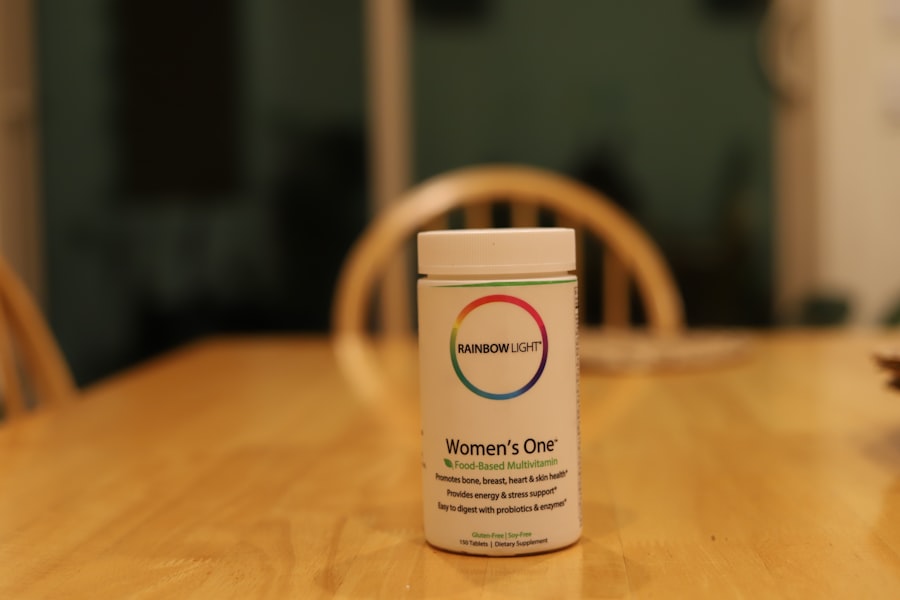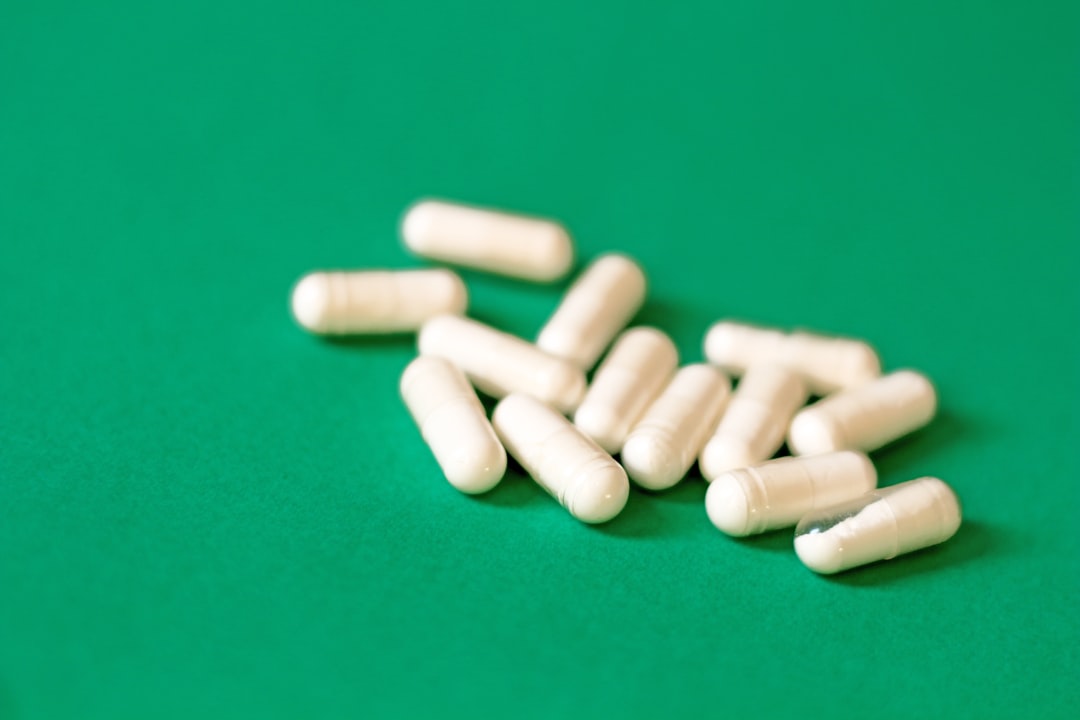Curcumin, the active compound found in turmeric, has garnered significant attention for its potential cognitive benefits. As you delve into the world of natural supplements, you may find that curcumin is often praised for its anti-inflammatory and antioxidant properties. These characteristics are believed to play a crucial role in protecting brain health and enhancing cognitive function.
Research suggests that curcumin may help improve memory, focus, and overall mental clarity, making it an appealing option for those looking to boost their cognitive abilities. Moreover, studies have indicated that curcumin can influence various biochemical pathways in the brain. It may promote the production of brain-derived neurotrophic factor (BDNF), a protein that supports the survival of existing neurons and encourages the growth of new neurons and synapses.
This is particularly important as you age, as BDNF levels tend to decline, potentially leading to cognitive decline. By incorporating curcumin into your routine, you may not only protect your brain from oxidative stress but also foster an environment conducive to cognitive enhancement.
Key Takeaways
- Curcumin has cognitive benefits, including potential improvement in memory and overall brain function.
- It is important to follow dosage guidelines for curcumin to ensure safety and effectiveness.
- Factors such as age, health conditions, and bioavailability should be considered when determining the right dosage of curcumin.
- Recommended dosage for cognitive function improvement may vary based on individual needs and health status.
- Calculating the right dosage for curcumin should take into account factors such as body weight and desired cognitive benefits.
- High dosages of curcumin may lead to potential side effects, so it is important to monitor intake carefully.
- Combining curcumin with other supplements may enhance cognitive benefits, but it is important to do so under professional guidance.
- Bioavailability plays a crucial role in determining curcumin dosage and effectiveness in the body.
- Dosage of curcumin may need to be adjusted based on age and specific health conditions of an individual.
- Monitoring cognitive function improvement with curcumin dosage can help in assessing its effectiveness over time.
- Consulting a healthcare professional is crucial for personalized dosage recommendations and to ensure safe and effective use of curcumin.
The Importance of Dosage Guidelines for Curcumin
When considering curcumin as a supplement for cognitive improvement, understanding dosage guidelines is essential. The effectiveness of curcumin largely depends on the amount you consume, as well as how your body absorbs it. Without adhering to proper dosage recommendations, you may not experience the full range of benefits that curcumin has to offer.
Therefore, it is crucial to familiarize yourself with the suggested dosages to ensure you are maximizing its potential. In addition to maximizing benefits, following dosage guidelines can help mitigate any potential risks associated with excessive consumption. While curcumin is generally considered safe, taking it in high doses without proper guidance could lead to adverse effects.
By adhering to established dosage recommendations, you can enjoy the cognitive benefits of curcumin while minimizing any potential side effects.
Factors to Consider When Determining the Right Dosage

Determining the right dosage of curcumin for cognitive enhancement involves several factors that you should take into account. First and foremost, your individual health status plays a significant role. If you have pre-existing health conditions or are taking medications, these factors can influence how your body metabolizes curcumin.
It’s essential to consider these aspects when deciding on a dosage that is both effective and safe for you. Another important factor is your age and lifestyle. As you age, your body may process supplements differently than it did in your younger years.
Additionally, your diet and overall lifestyle can impact how well curcumin works for you. For instance, if you consume a diet rich in fats, it may enhance the absorption of curcumin, allowing you to benefit from lower dosages. Conversely, if your diet lacks healthy fats, you might need to adjust your intake accordingly.
Recommended Dosage for Cognitive Function Improvement
| Age Group | Recommended Dosage |
|---|---|
| Children (4-8 years) | 800-1000 mg/day |
| Children (9-13 years) | 1000-1200 mg/day |
| Adolescents (14-18 years) | 1300 mg/day |
| Adults (19-50 years) | 1000 mg/day |
| Adults (51+ years) | 1200 mg/day |
While there is no one-size-fits-all answer when it comes to the recommended dosage of curcumin for cognitive function improvement, research suggests that a daily intake of 500 to 2000 mg may be beneficial for most individuals. This range has been shown in various studies to provide cognitive benefits without significant side effects.
If you’re new to curcumin supplementation, starting at the lower end of this dosage range may be wise. This allows you to gauge how your body reacts before gradually increasing your intake if necessary. Monitoring your cognitive function during this period can help you determine whether the dosage is effective for you or if adjustments are needed.
How to Calculate the Right Dosage for Individual Needs
Calculating the right dosage of curcumin for your individual needs involves a few simple steps. First, consider your weight; some experts suggest a dosage of approximately 1-2 mg per kilogram of body weight as a starting point. For example, if you weigh 70 kg (about 154 lbs), a daily intake of 70-140 mg could be appropriate.
However, this is just a guideline; personal factors such as health conditions and lifestyle should also be taken into account. Next, consider the form of curcumin you are using. Curcumin supplements come in various forms, including capsules, powders, and extracts.
Each form may have different concentrations of active ingredients, so it’s essential to read labels carefully and adjust your calculations accordingly. If you’re using a highly concentrated extract, for instance, you may need a smaller dosage compared to standard turmeric powder.
Potential Side Effects of High Dosages of Curcumin

While curcumin is generally regarded as safe when taken within recommended dosages, high doses can lead to potential side effects that you should be aware of. Some individuals may experience gastrointestinal issues such as nausea, diarrhea, or stomach cramps when consuming excessive amounts of curcumin. These side effects can be particularly pronounced if you’re not accustomed to taking turmeric or curcumin supplements.
Additionally, high dosages may interfere with certain medications or exacerbate existing health conditions. For instance, curcumin has blood-thinning properties and could interact with anticoagulant medications, increasing the risk of bleeding. Therefore, it’s crucial to monitor how your body responds to curcumin and consult with a healthcare professional if you experience any adverse effects or have concerns about interactions with other medications.
Combining Curcumin with Other Supplements for Cognitive Enhancement
Combining curcumin with other supplements can enhance its cognitive benefits and improve overall effectiveness. For instance, pairing curcumin with black pepper extract (piperine) has been shown to significantly increase its bioavailability—meaning your body can absorb and utilize it more effectively. This combination allows you to achieve better results with lower dosages of curcumin.
Other supplements that may complement curcumin include omega-3 fatty acids and antioxidants like vitamin E or Omega-3s are known for their neuroprotective properties and can work synergistically with curcumin to support brain health. By creating a well-rounded supplement regimen that includes these complementary nutrients, you can optimize your cognitive function and overall well-being.
The Role of Bioavailability in Determining Curcumin Dosage
Bioavailability refers to the extent and rate at which an active ingredient or active moiety is absorbed and becomes available at the site of action in the body. In the case of curcumin, its bioavailability is relatively low due to poor absorption in the gastrointestinal tract. This means that even if you’re taking a high dose of curcumin, your body may not be utilizing it effectively.
To enhance bioavailability, consider choosing formulations that include piperine or other absorption-enhancing compounds. Additionally, consuming curcumin with fats can improve absorption since it is fat-soluble. Understanding bioavailability is crucial when determining your dosage; by selecting products designed for optimal absorption, you can ensure that you’re getting the most out of your curcumin supplementation.
Adjusting Dosage Based on Age and Health Conditions
As you age or if you have specific health conditions, adjusting your curcumin dosage may be necessary to achieve optimal cognitive benefits safely. Older adults often experience changes in metabolism and absorption rates, which can affect how their bodies process supplements like curcumin. Therefore, it may be beneficial for older individuals to start with lower dosages and gradually increase them while monitoring their response.
If you have underlying health conditions such as diabetes or cardiovascular issues, it’s essential to consult with a healthcare professional before starting curcumin supplementation. They can provide personalized recommendations based on your unique health profile and help determine an appropriate dosage that aligns with your treatment plan.
Monitoring Cognitive Function Improvement with Curcumin Dosage
Monitoring your cognitive function while taking curcumin is vital for assessing its effectiveness and determining whether adjustments are needed in your dosage. You might consider keeping a journal where you track changes in memory, focus, and overall mental clarity over time. This self-assessment can provide valuable insights into how well curcumin is working for you.
Additionally, consider using standardized cognitive assessments or tests available online or through healthcare providers to measure improvements objectively. By regularly evaluating your cognitive function alongside your curcumin intake, you’ll be better equipped to make informed decisions about your supplementation strategy.
Consulting a Healthcare Professional for Personalized Dosage Recommendations
Before embarking on any supplementation journey—especially one involving curcumin—consulting a healthcare professional is highly advisable. They can provide personalized recommendations based on your health history, current medications, and specific cognitive goals. A healthcare provider can also help monitor any potential side effects or interactions with other treatments you may be undergoing.
By working closely with a healthcare professional, you can develop a tailored approach to curcumin supplementation that maximizes its cognitive benefits while ensuring safety and efficacy. This collaborative effort will empower you to make informed decisions about your health and well-being as you explore the potential of curcumin in enhancing cognitive function.
Curcumin, a compound found in turmeric, has been the subject of numerous studies due to its potential benefits for cognitive function. Research suggests that curcumin may help improve memory and attention in older adults, possibly due to its anti-inflammatory and antioxidant properties. For those interested in exploring the appropriate dosage and its effects on cognitive health, a related article can be found on the Explore Senior Health website. This article delves into the recommended curcumin dosage and its impact on cognitive function, providing valuable insights for those considering it as a supplement. For more detailed information, you can read the full article by visiting Explore Senior Health.
WATCH THIS! 🧠 Stop Senior Moments: The Golden Spice That Reverses Memory Loss
FAQs
What is curcumin?
Curcumin is a natural compound found in the spice turmeric, which is commonly used in Indian cuisine. It is known for its anti-inflammatory and antioxidant properties.
What is the recommended dosage of curcumin for cognitive function?
The recommended dosage of curcumin for cognitive function can vary depending on individual factors such as age, weight, and overall health. However, typical dosages range from 500mg to 2,000mg per day.
Can curcumin improve cognitive function?
Studies have shown that curcumin may have potential benefits for cognitive function, including improved memory and attention. However, more research is needed to fully understand its effects on cognitive health.
Are there any potential side effects of taking curcumin for cognitive function?
While curcumin is generally considered safe, some people may experience side effects such as stomach upset or diarrhea. It may also interact with certain medications, so it’s important to consult with a healthcare professional before taking curcumin supplements.
Can curcumin be taken with other supplements for cognitive function?
Curcumin can be taken with other supplements for cognitive function, such as omega-3 fatty acids or vitamin D. However, it’s important to discuss with a healthcare professional before combining different supplements to ensure safety and effectiveness.
